
11 Mar Alumni Spotlight – Shalini Bath ’89
Former Head of Product Marketing for Apple India, Shalini Bath ’89 worked at Apple for over 16 years and during her time there helped found Women@Apple diversity network associations in India and Latin America. She is now using her experience working with global companies and brands to help NGOs and the Woodstock community. Currently residing in London with her husband Tom and daughter Aishwarya, Shalini recently connected with Advancement and Alumni student intern Arav to share reflections on her corporate career, insights from her latest endeavors, her Woodstock connections of yesterday and today, and more.
Arav: It’s great to meet you! Thank you so much for spending time with me today. It means a lot. To start, can you tell us a little about your professional journey and what you’re currently involved in?
Shalini: So, for the last 16 years I have held multiple complex sales and marketing roles around the world with Apple. I started in London leading the product marketing team for Mac computers. This was in 2006, and at that time there were only Macs and iPods; the iPhone hadn’t come out yet. After about three years in London, I went to Bangalore, India. We were in the Bangalore office for a year, and we made it a much bigger, larger team. In addition to product marketing, I took on sales operations, which entailed managing all products. I managed training and oversaw contracting and initiation of new partnerships, paving the way for the success of new ventures in India.
From Bangalore we went to Dubai and opened the Apple office there. That was in 2010. I did that for four years till 2014 when I went to Miami. There I ran the product marketing team for all products in Latin America for four years. In 2018 I again came back to India because Apple was looking at how they could increase business in India as compared to China, its most significant overseas market. I led the product marketing team and the education marketing team in India before deciding to change my trajectory a bit. I wrapped up my exciting 16-year career with Apple just over a year ago.
Now I’m in London with my family, and I have my own company, Ines Ventures. I invest in small startups working in spaces that matter to me. Most of my time, however, is spent working with the founders and executive teams of NGOs focusing on women and children. My product marketing experience with Apple and other global brands helps me look at the NGO space with a different lens. I use my corporate sales and marketing perspectives to help NGO leadership with their strategy, branding, and overall marketing and funding. There are four NGOs that I work with, and all of them are focused on improving the lives of women and children on the Indian subcontinent.
[One of the NGOs that Shalini works with is The Sarvodya Collective: Inclusive Duniya (Awareness campaign on Neurodiversity).]
Along with following my passions, I have chosen to give back to places that mean a great deal to me. Woodstock is one of them. Given this, the Woodstock Alumni Ambassador Program launched by Advancement Director Katie Jo Walter and Advancement Committee Chair Jonake Bose ‘81 is something I want to see become a success. I feel we Woodstockers are unique in so many ways, in ways that others are not. We are resilient, curious, determined, agile, passionate, and crazy at times. Woodstock has made us who we are, so together we should be able to help and make Woodstock even more successful.

Shalini’s Family Photo
Arav: You’ve obviously enjoyed a very successful career. How have you defined success for yourself, and what have been some key factors that have helped you in achieving success?
Shalini: I’m a curious person by nature, and I always want to learn something new. I also like to create new teams. I like to start from the bottom where no one has ever done it. When I’ve started new jobs, I’ve always said to myself, “Okay, this is what I would like to do for three to four years. What’s the next job I want to do?” As soon as I start, I’m always looking for the next job to do so that I can see my trajectory.
So, my bar of success has been that I’m looking for growth, seeing how my current job will allow me to help others grow, how that experience will help me take my skills to the next level of leadership and global involvement, and have that be reflected in my CV.
Learning new skills all the time is also an indicator of success for me. I feel the empowerment and achievement associated with success when I am learning about new regions and how to apply the same skill set in new cultural environments and regions. That’s really been my barometer – always learning something new, continuing to be curious, delivering more than I did before, and giving more back than I did.
I’m always looking for what I can do better next and what I can learn. I get bored easily, so that can be an issue sometimes with higher-level management because they want you to stay in the same role. I’m like, “Okay, first year, I’m learning. Second year, delivery. Third year, okay, been there, done that, I can do this! So then what do I do next?” It’s really to be agile, to be curious, and to stay grounded but also to look ahead, evaluate your skill sets, and talk to other people. How could I be doing this? What else could I be doing?
Arav: That´s very insightful. I’m wondering about your recent increased involvement with NGOs and giving back to society … how’s that been going? Anything new you’ve learned, perhaps?
Shalini: It has been going amazingly well. I don’t have a skill set in this area, but the way I approach it is, “Well, I worked at Apple for 16 years, before that at HP and Compaq, and before that at Levi’s and a Unilever subsidiary. I’ve learned marketing and applied it across different industries and cultures. In light of that experience, I can bring a different approach to NGOs. So let me bring all that experience and ask the founders of these NGOs or the executive teams what they’re doing and how they’re doing it and help them look at things differently. This includes introducing new ways for them to go about solving problems and marketing themselves.
All of it’s new, to be honest. Sometimes, I’m working with a family or working with individual founders. It’s very different, of course, than working in the corporate environment. There are personal initiatives here versus, you know in the corporate environment, you’re looking at the global good and how you want to achieve it across your different layers of engagement. And here you’re looking at the global good but using a very different lens. Is it smaller? I don’t’ know, but it’s more catered to how the founder thinks and what they want to deliver.
The NGOs I work with focus on women and children, and I choose to work with them because my passion lies in this area. After pursuing a career in technology I’ve come back to where my passions lie. At Apple, too, I was involved in this space as one of the co-founders of Women@Apple in both India and Latin America.
There are numerous big questions to answer. How do you bring women up? How can we help them get ahead? What are some of the messages we relate to in the corporate world, and how can they be transferred to mobilize support for women’s and children’s social initiatives? And how can we create a holistic environment in which women can work and progress? It’s been super interesting.
I’ve been working with one NGO that is producing a podcast on challenging desi gender norms. I am working as an advisor with the founder of the Podcast. At the moment it’s in the Top 10 Podcasts on the Apple Store in the Culture in India category, and we’re super excited about that. The Podcast is featured on Apple’s US, UK, Canada, India, Pakistan, Bangladesh, and Sri Lanka sites. This was just launched in September, and it’s doing super well across all of these international sites. It is interesting stuff and is super fun. Every day is a different day now.
[HHer Kajal Wont Smudge: Podcast]
For me everything is new because a year ago I didn’t have a lot of experience, if any, in this space. So how does the NGO space work? What’s effective? What’s not effective? I try to answer these questions and then apply some of my learnings from the technology industry to this very new space and do some experimentation. Honestly, every day I’m engaging with these NGO founders and teams I’m learning. Often they’re teaching me, and then I come back and challenge them: “And why do you want to do it? How about thinking about it this way?” It’s so super fun. I love it. I don’t think I would ever go back to a full-time role in technology ever again.
Arav: Looking back at your time at Woodstock, what advice would you give to your younger self?
Shalini: The advice I would give to my younger self …. First, don’t be so hard on yourself about trying to succeed. Enjoy the moment and the experience. Take what you can from the present moment instead of being caught in the next thing, thinking, “God, I got to get a better job. God, I got to go up. God, I got to …. Enjoy the experience you’re having.
I would say it’s okay to work hard and be hard on yourself, but you also have to enjoy the ride. You also have to understand where you’re at and experience what you are in. As you move ahead and, yeah, keep working hard, keep looking forward, and continue to be agile and humble and determined, which I think Woodstock builds all of us to be.
I would also tell myself to stay curious, yet stay grounded, and always bring the Woodstock experience into any conversation you’re having, because Woodstock is a unique place, and it’s part of who we are. I only started to do that much later in my life. In interviews when people would ask me, “What are your strengths and weaknesses?” I would bring Woodstock in.
Arav: That’s some really good advice. What are some of your favorite memories of Woodstock while you were here?
Shalini: Oh, my gosh. I’ve got a few. I think one of them is one time when there was no water in Woodstock, which happened when we were in Alterridge. Alterridge had just been built. Since we couldn’t bathe in the dorm, we had to go and take a bucket bath in Midlands Stream. The water was sooo cold, and this went on for almost two and a half weeks, with us going every three days to take a bath in Midlands Stream. We had to hike down there and bathe in cold, freezing water. Did anyone complain? Everyone did! Everyone was like, “Oh my, it’s so cold.” And then we’d all throw water on each other. “What are we doing having a shower here?” But you know what? That is something I laugh a lot about, because it builds resilience. You know, if somebody left me on the side of the street and said, “Go figure it out. Find a job.” I’d find one because there’s the “you gotta make it work” mentality. So, you know, Woodstock with all of its amazing things taught us that mentality, because we had to accept and work with whatever situation we were in.
Other favorite memories involve going to the bazaar. We went every Saturday. Other memories – I hated hiking, but you know what? As I look back and get older, I think, “Those hikes were beautiful, and we took it all for granted – all of it!” But all of that makes each of us who we are. The nature around us that we took so much for granted was so beautiful, and it still is beautiful when we go back to Woodstock to appreciate it.
I have so many amazing memories, from when I started at eight years old until graduation at 18. Our senior class had so many midnight feasts and got into trouble. When we were eight, nine, our punishment was to learn dictionary words. The dorm matron opened the dictionary. At that time you had dictionaries. She opened it and she said, “You have to learn these three pages. You have two hours to memorize everything. Here’s the dictionary – memorize it!” And two hours later she would say, “Okay, do you know your words? You have to recite them, and then you are allowed to go down and eat dinner.”
Arav: Wow. Our punishments usually involve us waking up early in the morning and scraping the school walls.
Shalini: Yeah, none of that for us. It was memorizing words, and maybe for the boys it was scrubbing walls, but I know for all of us girls it was mostly memorizing words or sewing things because we had to sew somebody’s clothes, and it took like two hours. You had to stay in the same place, and you were not allowed to talk.
I would say that Woodstock was such a unique experience, and when you talk about it now, people still can’t understand how it is. You hike to school, and that also creates discipline. You have to hike to school. You have to make it to school every day. No question about it. Everyone’s doing it. That also teaches you something, you know, something different because you don’t have your parents around. It’s not the same for every boarding school.
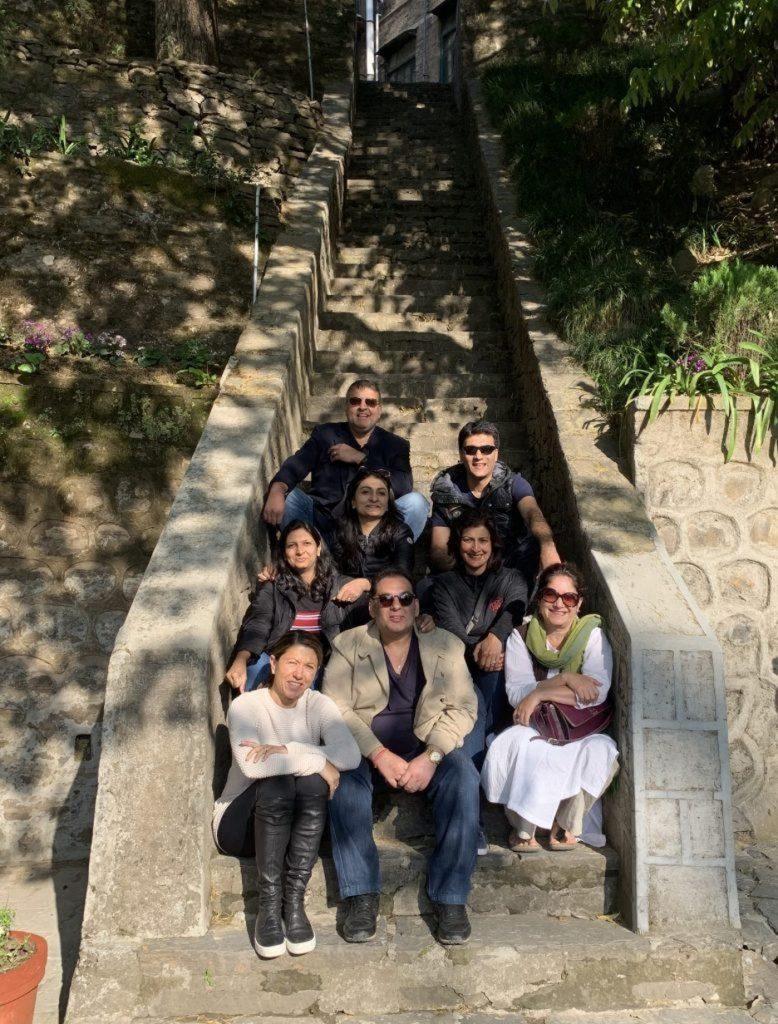
Reunion: 2019 (30 years)
Arav: How has your experience with the Woodstock alumni network been so far since you’ve graduated?
Shalini: I went to Woodstock from 1979 to 1989. In between I left for two years, so I was at Woodstock for eight years, the pivotal years of one’s life. Since I graduated in 1989 – and I think we’re touching our 35th anniversary reunion next year – I’ve stayed in touch with so many Woodstockers.
Through this time my husband and our daughter, we’ve all been to Woodstock. I put our daughter Aishwarya into Woodstock Summer School before COVID, and we went to the school a number of times. Everywhere I’ve been, I’ve always had one or two Woodstock friends and quickly built a strong circle of trust with them. I found that with Woodstockers, you can just be yourself, and you can talk, and they give you honest-to-God advice. There are also no barriers, and all your guards are down because you’ve all started in the same place. People understand that commonality, and they want everyone to succeed – even people you haven’t seen for 20 years. Suddenly I met somebody in London I hadn’t seen for 35 years, and we immediately picked up as if no time had passed.
I love meeting Woodstockers. I know it’s going to be an afternoon or evening of lots of laughter and memories. For example, all you have to do is mention hostel, and I connect. My mind goes right back there. “Oh, the swimming pool used to be there! Everyone used to jump off the railings and jump in!”
Just think of common things that you know about the environment. It’s so unique, and there aren’t many schools in the Himalayas like Woodstock, not with the global environment it delivers. As you grow up, you know the fact that it challenges everyone to be very humble and appreciate so much of what we have. It makes for a very universal and easily accessible foundation for our relationships with each other as alumni.
The Woodstock alumni base is strong, you know. I think we can create much more of a community, and that depends on all of us alumni to work to do that.
Arav: Yeah. Woodstock has a wonderful alumni network. There’s a Woodstock student everywhere in this world. And it’s really comforting to think about this immediate connection we have with any Woodstocker anywhere. And speaking of alumni community building, you’ve been working with WOSA Europe Council Member Dalia Majumder Russell ’01 to generate more activity in London and the region. What is your vision for WOSA in the UK?
Shalini: Great question. Our vision for WOSA in the UK would be to create a community that starts with new graduates and goes all the way back to people who graduated in the 1950s. This community comes together a few times a year, and in that coming together they give back to Woodstock both by helping one another and by donating to the school.
There’s mentoring and internships for the new alumni. It’s a vibrant environment of thought, leadership, and encouragement, and it’s a community of people who can help all the young people who come out of Woodstock because most of us who have been there and done that are more established and have both the capacity and enthusiasm to help out.
So, how do we bring that together? Ideally, I’d love to see between 100 and 150 people come together, at least once a year, and talk about Woodstock. I would love to interview some of the great alumni in the UK on their careers and their insights so others can learn from them. It’s essentially doing the small work needed to create an amazing environment that merges the younger and older alumni crowds into a community that everyone can give and take from – but it’s all benefiting Woodstock in the end.
- Christmas Gathering in London 2023
- Worldwide Woodstock Day in London 2023
Arav: That’s great. Creating that WOSA network and helping Woodstockers stay connected long after graduation is really important.
Shalini: We have so many great resources already at our fingertips, too. For example, I had no idea about Woodstock Alumni Connect. When talking to Woodstock Alumni Manager Aditya Manral, he explained to me what it is and how it works. It’s our very own Woodstock-centric social media and professional networking site. All of the young alumni are being trained on it before they leave Woodstock, and they understand how to use it. However, many of us seniors who have been around a long time didn’t even know this existed.
So, we need to build awareness around all of these great resources serving our community building efforts. We need to push things like this out to say, “Did you know you can connect? Do you want to mentor somebody who’s just out of Woodstock?” I bet at least 95 percent of the Woodstockers would mentor if they knew about it. It’s fun. I think Woodstock’s doing a lot, and there’s so much more we can always do. We just have to ask ourselves how to best come together to help young alumni as they come to our countries. And how do we drive our overall community towards continued growth and mutual benefit for all?
Arav: Aside from your alumni work in the UK, with whom from Woodstock have you been staying in touch the most, and how have you been connecting?
Shalini: There’s actually a lot of activity and communication. First, my class has a WhatsApp group. We all wish each other Happy Birthday, and it seems like there’s always a birthday. In fact today marks a very special birthday – that of my Woodstock roommate. We were roommates from the time I arrived at Woodstock, when I was eight years old. and she was nine, and we’ve remained friends and roommates the entire time. I called and wished her a happy birthday. She also just visited me two months ago. I have another Woodstock friend who lives just 10 minutes from here. There’s another Woodstocker two streets away in London. As a class we’re very much connected, and I think it’s great because wherever you go, one of us is likely there.
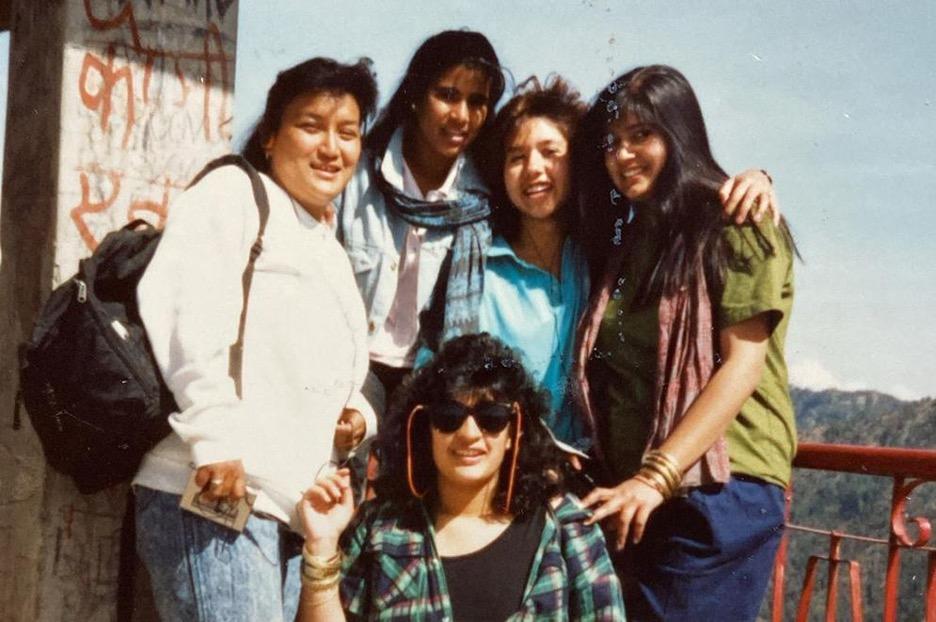
At Cozy Corner Senior Year 1989
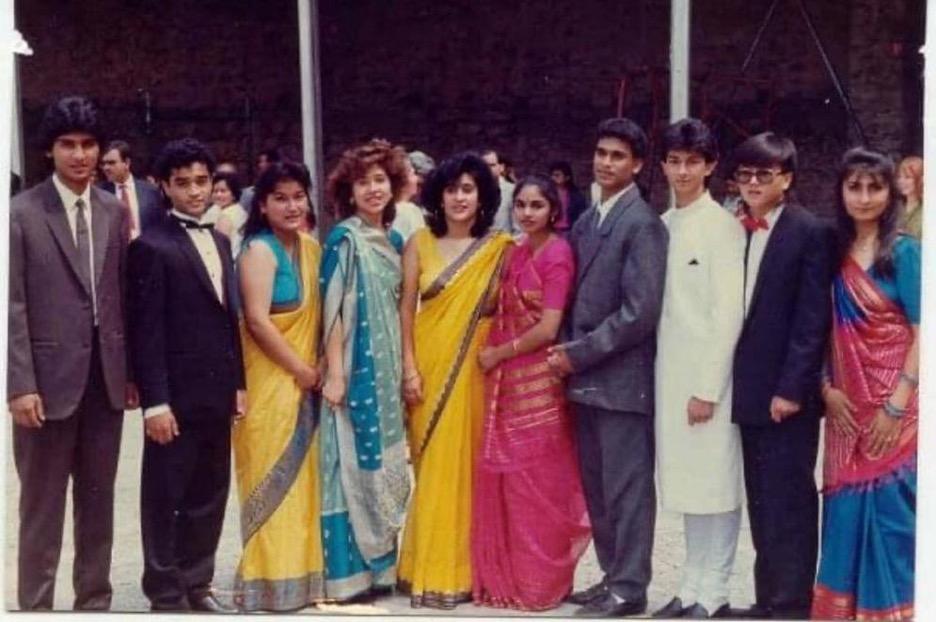
Graduation June 1989
- 1987 in Midlands
- Midlands
One of the ideas Katie Jo and I have spoken about is Woodstock Wednesdays. The first Wednesday of every month we can establish a location for meetings that happen without fail. All it takes is one Woodstocker to commit to being there so others can join.
This way wherever you are in the world there’s a Woodstock community. For example, if you happen to come to London for work, you can look on Alumni Connect and say, “Okay, where is Woodstock Wednesday? It’s the first Wednesday of the month. I know that wherever I am, they get together.” Somebody from our alumni community will be there. Katie Jo had been keen to do something similar in Delhi when I brought it up for London. Really, we could do this anywhere where there are at least a few Woodstockers.
It’s something we’re trying to create by first and foremost identifying Woodstock alums who want to lead the Woodstock Wednesdays. Let’s see how it goes, but it would be fun to do that. It’s a great way to build a community, and so that way you can keep in touch because I think that that’s also important, the more you do that the more the people connect, and then they take those connections outside of the get-together.
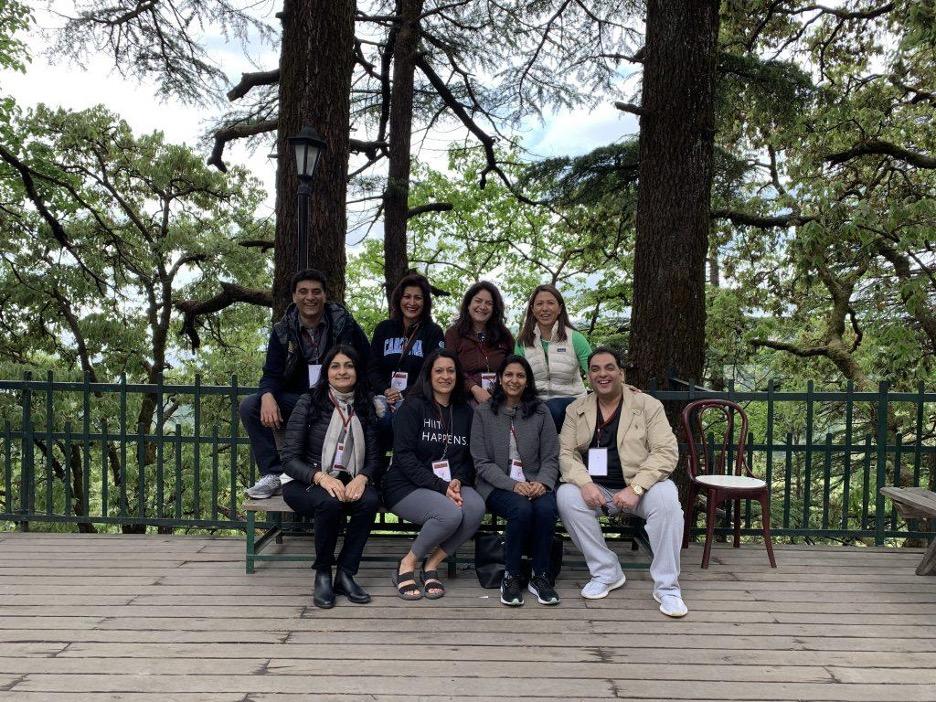
Reunion: 2019 (30 years)
Arav: I really like that idea, the thought of having someone you can connect with on a Wednesday wherever you are. That’s really cool.
Shalini: Yeah, it would be cool when it comes into play, and I think young alumni want to meet the older alumni. For older alumni, it’s more just to get together. It’s like, “Hey, we’re getting together.” People share some laughs – some stories – and have some drinks, so it’s fun like that.
And maybe it should be something around more Indian culture, so you can have some samosas. Have a drink if you want. But, you know, it’s more a connection point as well. It’s just an idea that hopefully is starting to come to fruition.
I am also focused on having those larger events I mentioned with 100, 150 people. I am looking at having at least a few events in London each year. One for Worldwide Woodstock Day, one for Christmas time, and one summer park gathering. I hope anyone in London will keep these gatherings in mind and plan to attend.
Arav: Finally, on the topic of mentoring younger alumni – and even students like me, what advice would you give to people who want to give back to the community and want to get into social service and work with NGOs?
Shalini: My first piece of advice: If you’re thinking about it, and you’re interested, do it. Go do it now, and enjoy the experience. Learn from it, and then go do more as you can. If you can’t do so much, do whatever you can, but do it.
There’s such a big need in the world for people to help. It can start from anything like neurodiversity to people affected by conflict in places like Israel, Palestine, Ukraine … to climate change. Whatever you’re passionate about, start giving back in that area, and do it now. Don’t wait to do it. Don’t wait until your career is started and going into full swing. Do a little bit even now. If you love mentoring people, go work at an organization that mentors kids or at Woodstock. Become a part of the Early Years Explorers program at the Centre for Imagination. If you want to work with older people, go do that. I think each of us needs to give back in our life. Whether we’re seasoned in our careers or just starting out, there is a balance, and giving back makes you realize how much you have which others do not. As you progress, it’s important to stay balanced, stay grounded, and always know that, yes, there’s somebody who may not have as much as you do yet is still thankful.
Arav: That’s a really good piece of advice. I’m sure that’ll help a lot of people who are interested in social service, including myself.
Shalini: I’m sure you have some interest areas. So, it’s just a matter of harnessing those areas and then asking, “Well, what could I do in this?” And giving it a try. And you learn from that experience because every experience treats you differently. There are at least three takeaways from every experience. Whether it’s positive or negative, you will learn. Challenge yourself to do that and go from there.
Interview by Arav, Class of 2025
*The Woodstock Alumni Ambassador Program is a School Board recognized volunteer leadership program with Ambassadors serving countries and geographic regions in support of alumni engagement, fundraising, and staff and student recruitment. More on the Alumni Ambassadors program is coming soon to Woodstock School Alumni Connect: https://woodstockalumniconnect.com/[/vc_column_text][/vc_column][/vc_row]






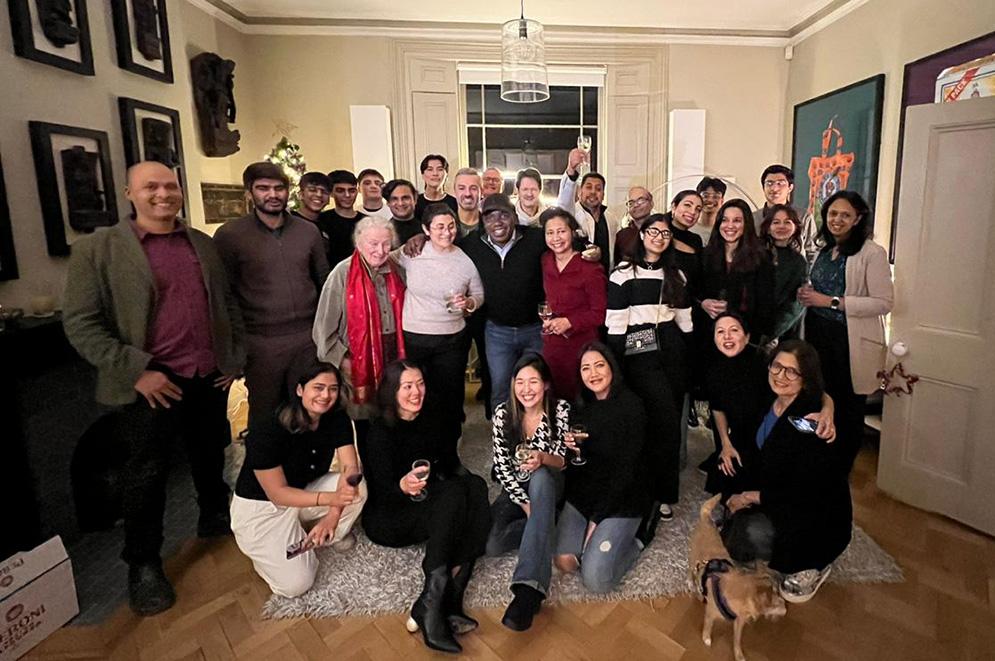

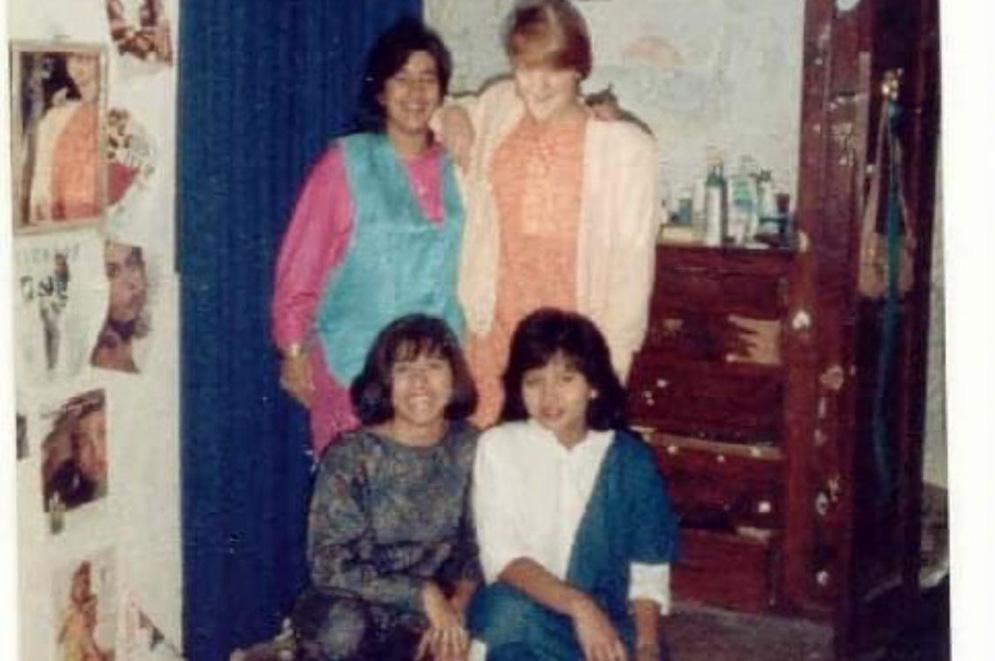
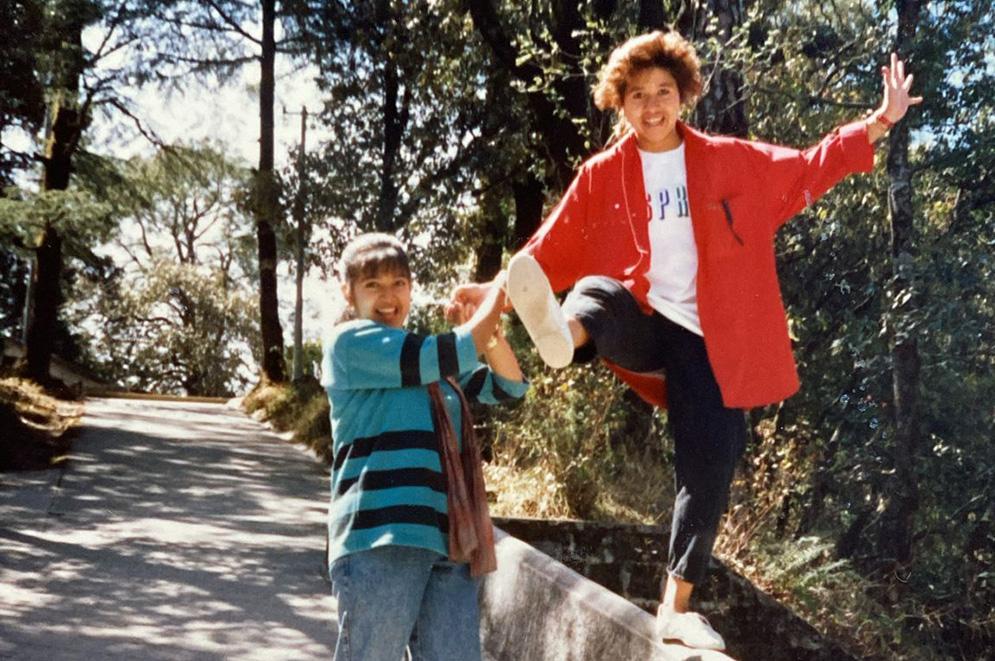
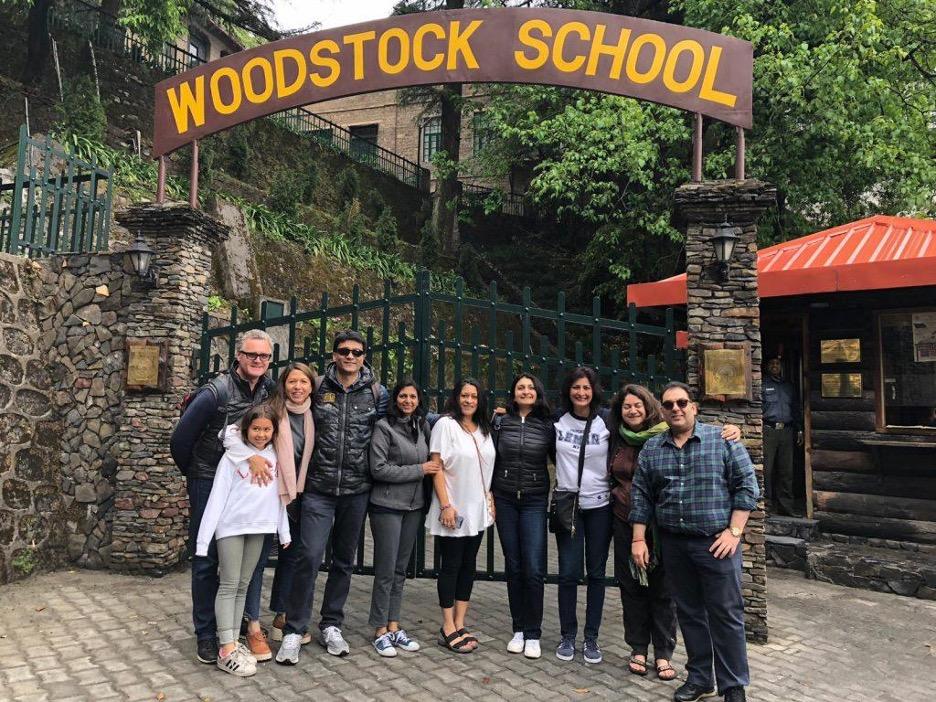
No Comments